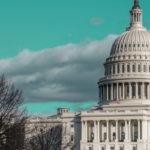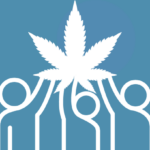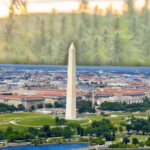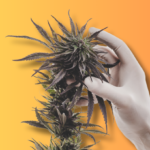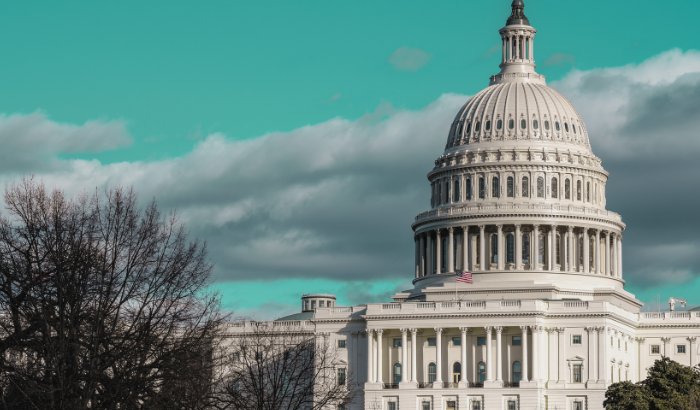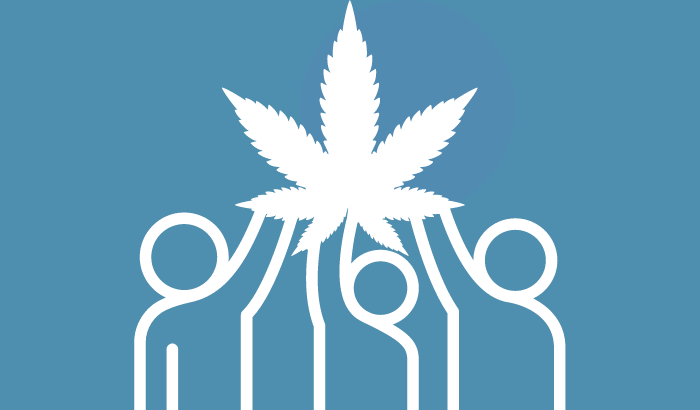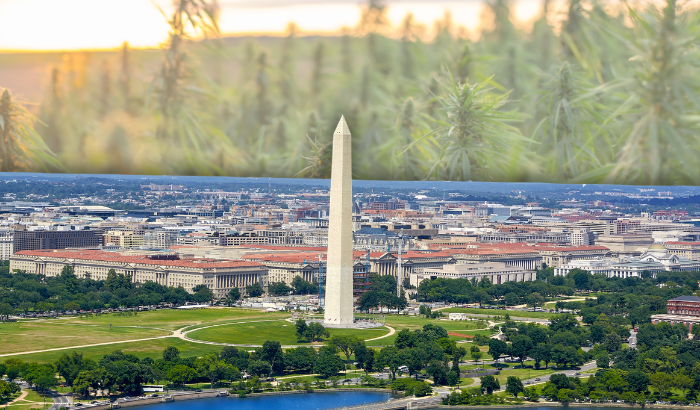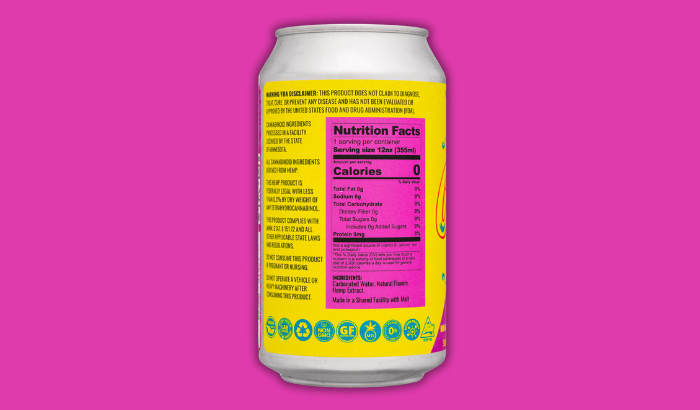
Gummies and drinks falling through regulatory cracks
Justin Evans and his wife were dining at Barrett’s Alehouse in West Bridgewater recently when his wife noticed Cheech & Chong seltzers on the menu containing 5 milligrams of THC, the high-inducing psychoactive ingredient in marijuana.
Evans was stunned. A selectman in Whitman, he has been working since May 2022 to bring marijuana dispensaries licensed by the Cannabis Control Commission to his town. He knows social consumption of marijuana isn’t legally allowed yet in Massachusetts and he wasn’t aware cannabis products could be sold outside of a dispensary.
After the dinner discovery in West Bridgewater, he began sleuthing around and found gummies and seltzers containing THC in Whitman at his local gas station, Quality Fuel. He spotted a four-pack of CANN “hi boy” seltzers branded as a “cannabis-infused social tonic” at his local liquor store, Regal Marketplace. And he found what appeared to be the same seltzer at a marijuana dispensary in Halifax. Both products contained the same 5 milligrams of THC.
There were some key differences between the CANN seltzers at his liquor store in Whitman and the marijuana dispensary in Halifax. The Whitman seltzers were labeled as having hemp-derived THC and CBD and the list of ingredients included “industrial hemp extract.” The Halifax dispensary seltzer said nothing about hemp or CBD, and included “cannabis extract” on its ingredients list.
The Whitman seltzers came with a warning that consumption of the product could result in a failed drug test. There was no similar disclaimer on the seltzer sold at the Halifax dispensary.
The other big difference was the price. The Whitman seltzers cost $19.99 for a four-pack plus a bottle deposit. The Halifax seltzers cost $7 apiece, $2 more than their Whitman counterparts. And the seltzers sold at the heavily regulated Halifax dispensary rang up with additional state sales tax and state and local excise taxes. All told, the four seltzers in Halifax cost $33.60.
From what he has seen, Evans believes two markets are emerging for products containing THC — one that is heavily regulated by the state and one that is not. He worries that the one will undermine the other.
“Before our first store even opened [in Whitman], this stuff just showed up on the shelves with equivalent products that probably undermine the entire business strategy of the businesses we were so hopeful would bring jobs and revenue to the town,” said Evans. “That’s been discouraging.”
Products made from cannabis plants are very stringently regulated and tracked by the Cannabis Control Commission from “seed to sale” with excise taxes, packaging requirements, strict daily purchase limits, licensing, testing protocols, and more.
As Evans came to realize, products made from hemp plants have none of the same regulations.
The reason hemp is treated differently is because the 2018 federal Farm Act removed hemp from the definition of marijuana, which is considered a controlled substance under federal law. Hemp comes from the same plant as marijuana but is distinguished by the fact that it must contain less than 0.3 percent THC by volume.
The intention of the law was to make hemp seeds and hemp fibers, which are used to make paper, more readily available. Businesses also market the CBD in hemp as a relaxant. But now businesses are deriving the limited THC in hemp to produce the new products that are starting to show up on store shelves. A federal court decision in California affirmed the legality of such products in the spring of 2022.
Brandon Pollock, the CEO of Theory, a cannabis company that owns dispensaries in Medford, Chicopee, and Great Barrington that are regulated by the Cannabis Control Commission, said his employees attempted to alert state agencies in Massachusetts about hemp-based THC products but were unable to figure out which agency was responsible.
“Some people who work at our company saw [hemp-derived] THC drinks on the menus [and] on the shelf at liquor stores. We talked to the Alcoholic Beverage Commission. They said that’s not allowed, but we’re not gonna do anything about it. That’s up to MDAR,” Pollock said, referring to the Massachusetts Department of Agricultural Resources. “And MDAR said it was up to the Department of Public Health. DPH said it was up to the local municipality to deal with. So it’s a very odd situation right now in Massachusetts where it doesn’t seem like anyone wants to sort of take responsibility for enforcement.”
The Cannabis Control Commission said it only regulates cannabis and not hemp. The Massachusetts Department of Agricultural Resources said it regulates the growing and processing of hemp but not what hemp-based products retailers choose to sell. The Department of Public Health said that hemp-derived THC edible products are illegal based on Food and Drug Administration regulations but would not confirm if DPH is responsible for regulating the hemp-derived products. DPH subsequently said it is working on updating current guidance to local boards of health and others to address food with hemp-derived THC compounds. Current but guidance focuses only on CBD.
John Nathan, the CEO of a company called Bay State Extracts which produces hemp-derived compounds like CBD and sells them, said hemp products should be more tightly regulated.
“Your marijuana product has to pass a testing that is verified by the CCC so marijuana products are exponentially more reliable in terms of matching what’s on the label,” said Nathan. “I would like enforcement on testing [on hemp products] to ensure everything is what it says it is in the interest of consumer safety.”
Under Cannabis Control Commission regulations, a customer has to scan a photo ID to enter a dispensary, buy a product, and when they leave. There is a strict age limit for who can enter,
“The restrictions put on the regulated cannabis industry are pretty intense,” said Evans, the Whitman selectman. “There’s a lot of those steps that the less regulated market might not be following.”
Peter Grinspoon, a doctor at Massachusetts General Hospital and an instructor at Harvard Medical School who recently published a book about the medical science behind cannabis, said it is worrying to have unregulated products that are readily available to children.
“We’re already worried about the effect of cannabis on teenage brains,” said Grinspoon. “What about these unregulated products with things that haven’t been tested? The danger is just in the lack of education and lack of regulation. People could be getting anything [when they purchase a hemp product].”
Pollock, the owner of Theory, said sales of hemp-derived products aren’t adversely affecting his business but he pointed out the double standard in how hemp-derived products and the cannabis products that he sells are regulated.
“It’s more of a philosophical question,” he said. “Why would we go through such an expensive and intense regulatory process to create these regulated products if you could simply just sell THC with no license?”
Lawmakers overseeing the Legislature’s Joint Committee on Cannabis Policy did not return phone calls.
The hemp-derived products have been cropping up all over the country, even in states where marijuana isn’t legal. Some states have explicitly regulated these hemp-derived products and have faced significant pushback from hemp businesses who say that these laws can be very hurtful to their businesses.
Maryland, New York, and Virginia drastically limited the amount of THC contained in hemp-derived products. New York has implemented the most strict cap–a hemp-derived product can not contain more than 1 milligram of THC per package.
Minnesota has taken a somewhat different approach by allowing intoxicating hemp-derived products to remain on sale as long as each serving has no more than 5 milligrams of THC and no more than 2 servings of THC are in a package. The state’s legislators have kept these products legal while introducing more regulations on testing requirements, more strictly enforced age limits, and state registrations of sellers.
Grinspoon said that banning hemp-derived THC products isn’t the solution to the hemp-based products, but that more regulation is necessary.
“I’m not necessarily a proponent of banning it because if you ban it then it just goes to the illicit market and it’s even more dangerous,” Grinspoon said. “But I certainly do think it needs to be regulated. I’d much rather…it would be regulated so that you know what you’re getting and you know what you’re not getting so that people aren’t poisoning themselves.”
This article was reprinted with permission from CommonWealth Beacon. You read the original version here.



